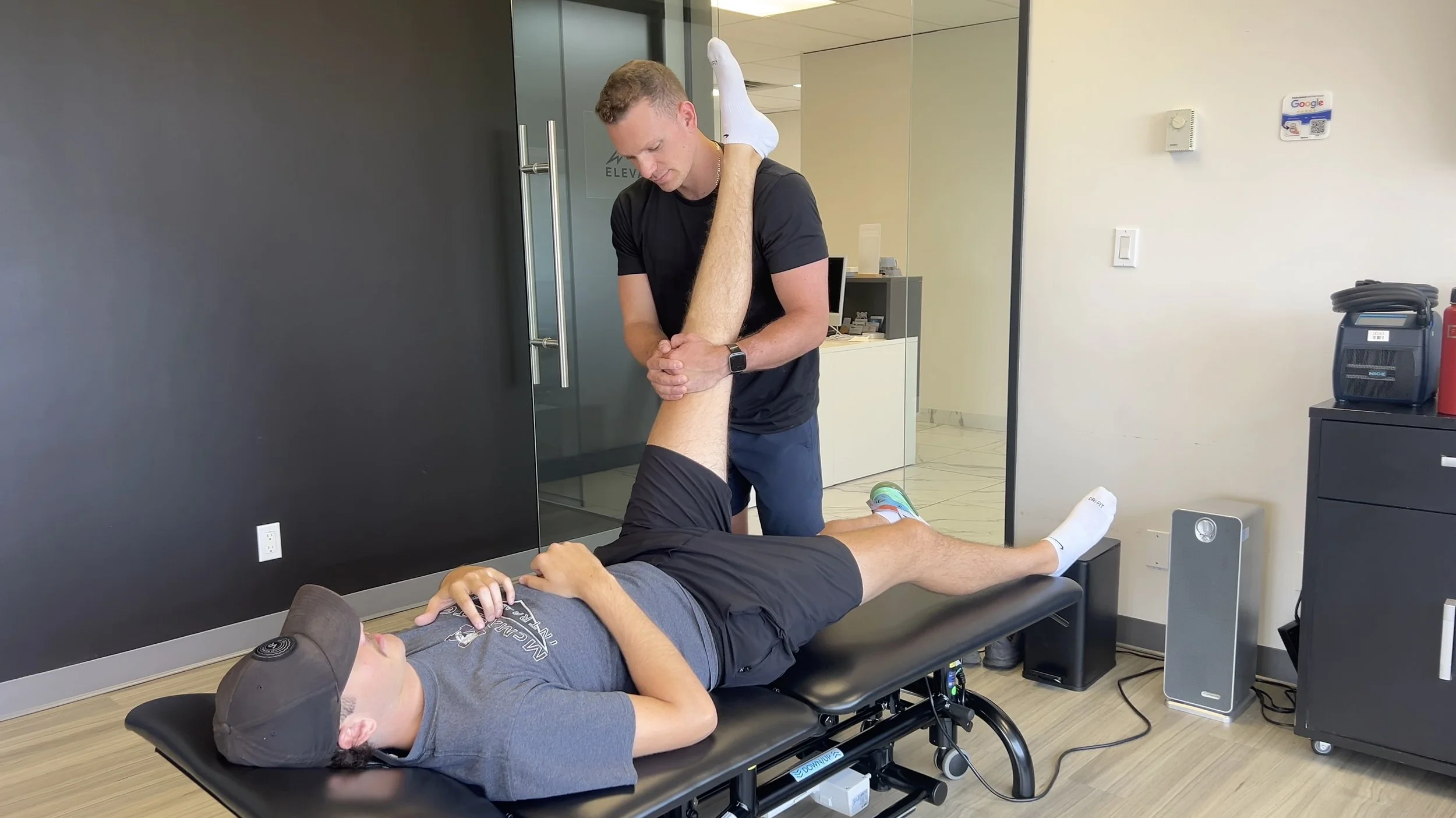Signs Your ACL Recovery is On Track (Or Not)
Recovering from an ACL injury can feel like a rollercoaster. Some days you’re moving well and feeling strong. Other days, it might feel like you’ve taken a step back. That’s normal, but it’s also important to know if your recovery is on the right path.
At our Oakville clinic, we help patients navigate every stage of ACL recovery, and we created the ACL Rehab Program. Here’s how to tell if your recovery is going smoothly, and which signs might mean it’s time to reassess your plan.
✅ Positive Signs Your ACL Recovery is On Track
1. Pain and Swelling Are Decreasing - It’s normal to have some discomfort in the early stages, but pain and swelling should gradually reduce over time. If you’re needing less ice, fewer pain meds, and your knee looks and feels more normal each week, you’re likely on track.
2. Range of Motion is Improving - Regaining full knee extension (being able to straighten your leg completely) is crucial early on. Flexion (bending your knee) should also improve steadily. By 6 weeks post-surgery, most people should be near 120 degrees of flexion or more.
3. Walking Without a Limp - By the end of the first 6 to 8 weeks, walking without a limp and without compensating through the hips or opposite leg is a good sign. Your gait should feel natural and pain-free.
4. Quad Muscle is Activating - Getting your quadriceps to fire properly again can be challenging. If you’re seeing muscle tone return and can perform leg raises or light squats without your leg buckling, your recovery is progressing well.
5. You’re Progressing Through Rehab Phases - Every rehab program should have clear milestones and phases. Moving from basic mobility to strength, balance, agility, and sport-specific drills means your body is responding well to treatment.
6. Confidence is Growing- Recovery isn’t just physical, it’s also mental. Feeling more confident in your knee with everyday tasks and light exercise is a huge win. If fear of re-injury is fading and you’re trusting your knee more, you’re heading in the right direction.
There are many more indicators outside of these major ones that can tell you things are going well. Be sure to also take note of the smaller wins along the way. For example, waking up in the morning and feeling a bit more optimistic about your recovery journey is definitely a win. Feeling like that 7/10 pain has gone down to a 6/10? That’s also a small, yet positive sign you’re on the right path!
🚩 Red Flags That May Indicate a Problem
1. Ongoing Pain and Swelling - If your knee continues to swell after exercise or you still need painkillers several weeks post-injury, something may not be healing correctly. Chronic inflammation can stall progress.
2. Limited Range of Motion - Not being able to straighten or bend your knee past a certain point can delay your recovery. It may indicate scar tissue buildup or joint stiffness that needs targeted treatment.
3. Compensation in Movement - If you’re favoring one leg, limping, or noticing changes in your posture or balance, your body may be compensating for weakness or instability. This can lead to hip, back, or foot pain over time.
4. Lack of Strength Progress - Your muscles should be getting stronger week by week. If your leg is still significantly smaller or weaker than your other side after several months, you may need to adjust your rehab plan.
5. Fear or Anxiety About Movement - Mental blocks are real. If you’re avoiding certain movements out of fear or anxiety, talk to your rehab team. Mental readiness is just as important as physical milestones.
6. No Clear Plan or Milestones - If you’re unsure what your next rehab goal is or you feel like you’re just “winging it,” your recovery may stall. A structured program with clear steps helps you stay on track and motivated.
❓What to Do If You’re Unsure
Not everyone heals at the same pace. If you’re concerned about your progress, reach out to your rehab team. A reassessment can help identify any issues early and adjust your program to get things moving again.
At Elevate, we take a team approach by combining physiotherapy, chiropractic, massage therapy, athletic therapy, and advanced equipment like the Anti-Gravity treadmill to help you stay on course with our ACL Rehab Program.
⏳ Trust the Process
ACL rehab takes time. It’s full of ups and downs, but having a strong team and a clear plan can make all the difference. Celebrate the small wins, pay attention to your body, and don’t be afraid to speak up if something feels off.
If you have any questions or concerns, feel free to reach out to us at any time. Additionally, you can book a free discovery visit with one of our practitioners to sit down and talk with them one-on-one.
📍 710 Dorval Dr Unit 520, Oakville, ON
📞 (289) 835-2949
💻 https://www.elevaterehabilitation.com/

